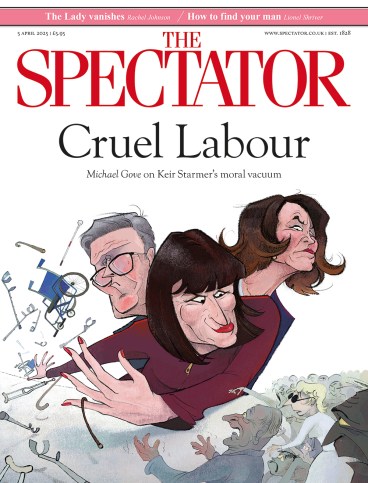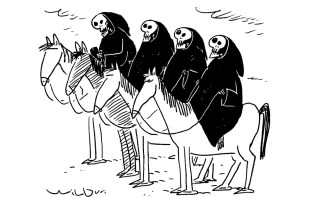
West Virginia. There is a paradox. A state of natural beauty, glorified by mountains and watered by rivers – including the Shenandoah (surely the most beautiful word in American) – carved out of reluctant nature by hard human labour, then divided by slavery and war, but ending on the Union side – it ought to be an honoured political jurisdiction. But the West Virginians broke away from the rest of Virginia. In its early days, it was governed by cultivated gentlemen, who filled their cellars with fine wine and their libraries with fine books. Yet the way of life which managed this transplant of European civilisation was sustained by slave labour in the cotton fields.
It is as if the West Virginians have never been forgiven for abandoning the lost cause
Another paradox. In previous ages, many human beings lived lives in which a cry of pain was never far away: stoicism was a constant necessity; religion an essential consolation. Somehow, high culture survived – but only because sensitivity and insensitivity formed a coalition. That was especially true in antebellum Virginia.
Through all the conflicts of the Civil War, the West Virginians were on the right side. The best that could be said for the other Virginians is that although we would rather have dinner with Robert E. Lee and his fellow paladins of the Confederacy than the rougher West Virginians, General Lee and his associates were romantic but wrong. It is important that they lost. Yet it is as if the West Virginians have never been forgiven for abandoning the lost cause.
Although it is becoming harder under wokery, humour depends on mockery, in which various unfortunate groups are singled out for persecution. Sometimes, potential victims evade this by pre-emptive measures. If ever a race had less reason for laughter, it has often been the Jews, yet their humour is some of the finest in the world. Oy vey.
Jokes about West Virginians go along these lines: a West Virginian girl is betrothed at the age of 15 and married. On her wedding night, she turns out to be a virgin, and is immediately sent back to her own folks. If she is not good enough for them, she is not good enough for us.
At the other end of the social humour spectrum, back in the early 1970s when dogmatic Keynesianism was showing signs of collapse, I heard J.K. Galbraith, that patrician relic of the old order, refusing to concede that his theories might be flawed. ‘For 40 years,’ he said, ‘I have been examining PhD students. If at any stage in those decades, someone had said that it was possible to combine 7 per cent inflation and 7 per cent unemployment, I’d have flunked him as too stupid even to teach in West Virginia. It has taken President Nixon and Premier Heath to prove me wrong.’

Not that he accepted the proof. He would merely have banished the politicians to West Virginia. ‘Economic commonsense arrived in West Virginia earlier than in Cambridge, Massachusetts or Cambridge, England’: discuss.
Even so, although the boondocks are all very well, there is nothing very serious to drink. So a friend, off to West Virginia on business, fortified some of us with wine which could only be described as magnificent. A Drouhin le Montrachet ’09: beyond superlative, though it was if anything too young. A Clos de Lambrays ’05: for me, the highlight of the evening. A Faiveley Chambertin Clos de Beze ’09: I think that there is nothing in Burgundy better than Clos de Beze. Then we crossed the country to conclude with an Yquem ’01, which was every-thing it should have been. Not only have I never enjoyed a finer evening’s tasting: I am confident that there has never been such vinous delight in the entire history of West Virginia.






Comments